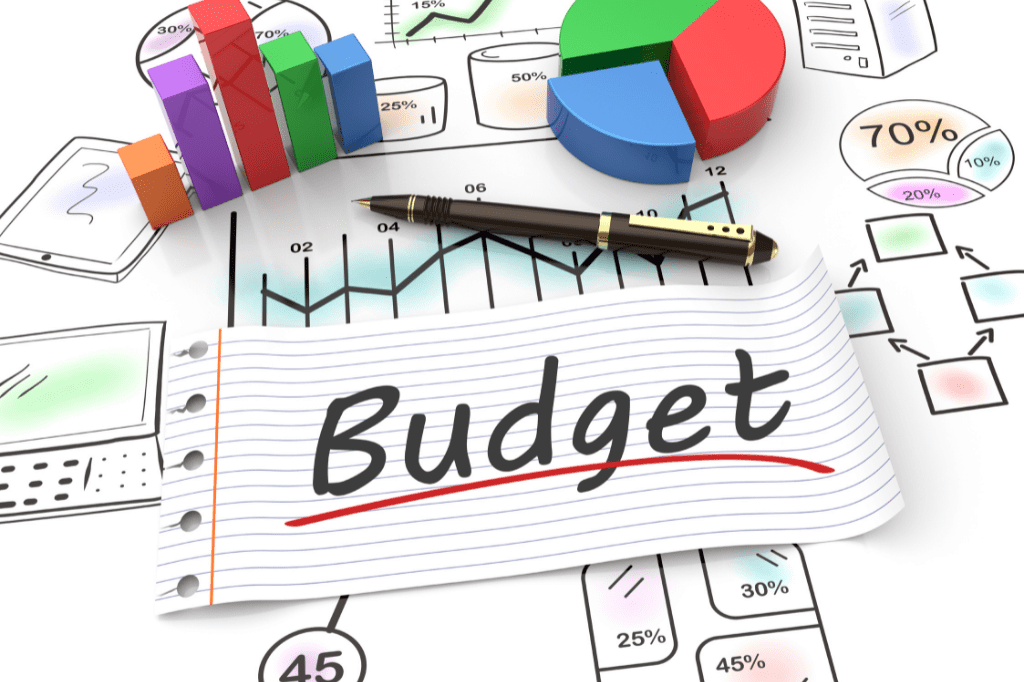How to Make a Monthly Budget: 12 Easy Steps
A monthly budget is a crucial tool for anyone looking to get their finances in order. It can be tough to stick to a budget, but with these 12 easy steps, you can make a monthly budget that works for you!
What is a monthly budget?
A monthly budget is an estimate of your income and expenses for a given month. Creating a budget can help you take control of your finances and save money.
Why is a monthly budget important?
A monthly budget is important because it can help you track your spending, save money, and make informed financial decisions.
Here is a quick list of the 12 steps on how to make a monthly budget:
– Determine your monthly income
– Calculate your expenses
– Find ways to cut costs
– Track your spending
– Create a savings and investment plan
– Stay on track
– Adjust as needed
– Make a plan for unexpected expenses
– Set financial goals
– Live within your means
– Be prepared for anything
– Enjoy your success!
Now let’s go into details on each one.
1. Determine your monthly income:
This is how much money you have coming in each month. Take a look at your pay stubs, any side hustle earnings, and any other sources of income to get an accurate number. Make sure you calculate your income using your net income, which is your income after taxes.
Tip: If your income fluctuates month to month, take an average of your earnings over the past few months to get a more accurate number.
10 Steps on How to Find the Right Career for Me and Thrive
19 Cheapest Business to Start from Home
2. Calculate your expenses:
This is how much money you have going out each month. Include everything from your rent or mortgage payment to your grocery bill to your student loan payments. Don’t forget things like entertainment, travel, and eating out too!
Tip: Use a budgeting app or software to help you track your expenses. This can make it a lot easier to see where your money is going each month.
3. Find ways to cut costs:
There are likely areas where you can cut back on your spending. Maybe you can cook at home more often, or cancel that gym membership you never use. Every little bit helps!
Tip: A good way to find areas where you can save money is to track your spending for a month. This will help you see where your money is going and where you can cut back.
20 Clever Ways to Save Money with Tips and Tricks
4. Track your spending:
This step is key to sticking to your budget. Keep track of every penny you spend for a month so you can see where your money is going. This will help you make adjustments to your budget as needed.
Tip: Use a budgeting app or software to help you track your spending. This can make it a lot easier to see where your money is going each month.
5. Create a savings and investment plan:
It’s important to have a plan for your money. Decide how much you want to save each month, and where you want to invest your money. This will help you reach your financial goals.
Tip: Automate your savings by setting up a direct deposit from your paycheck into your savings account. This way, you’ll never even see the money and you’ll be less tempted to spend it.
Why Invest in Real Estate: 10 Benefits
Good Debt vs Bad Debt: How to Tell the Difference and Why It Matters
7 Great Ways: How to Invest Money Wisely
6. Stay on track:
It can be easy to stray from your budget, but try to stick to it as best you can. If you have a bad month, don’t give up! Just get back on track the next month.
Tip: Set up reminders for yourself so you don’t forget to stay on budget. This can be a daily or weekly reminder to check in on your budget, or a reminder to pay your bills on time.
7. Adjust as needed:
Life happens, and your budget may need to change with it. If you get a raise at work or your rent goes up, be sure to adjust your budget accordingly.
Tip: Review your budget regularly to see if there are any changes you need to make. This can be monthly, quarterly, or even yearly.
8. Make a plan for unexpected expenses:
Unexpected expenses are bound to happen. Whether it’s a car repair or a medical bill, having a plan for how to handle them can help you stay on track financially.
Tip: Create an emergency fund to cover unexpected expenses. This way, you’ll have the money you need without having to dip into your other savings.
9. Set financial goals:
What do you want to achieve with your budget? Do you want to save for a down payment on a house? Pay off your student loans? Invest? Set a goal and work towards it!
Tip: Make sure your goals are specific, measurable, achievable, relevant, and time-bound. This will help you create a plan to reach them.
How to Save for Early Retirement: 10 Best Ways
10 Ways How to Use Good Debt to Gain More Wealth
10. Live within your means:
This is easier said than done, but it’s important to remember. Just because you have the money doesn’t mean you have to spend it. Stick to your budget and resist the urge to overspend.
Tip: If you’re struggling to stick to your budget, try the 30-day rule. This means that if you want to buy something, you have to wait 30 days to see if you still want it. This will help you avoid impulse purchases.
11. Be prepared for anything:
Murphy’s Law says that anything that can go wrong, will go wrong. Having an emergency fund can help you weather any financial storms that come your way.
Tip: Build up your emergency fund to cover at least three months of living expenses. This will help you cover unexpected costs, like a job loss or medical bills.
12. Enjoy your success!
You’ve worked hard to make a budget that works for you, so enjoy your success! Take a little time to celebrate your accomplishments and pat yourself on the back. You deserve it!
Tip: Give yourself a small reward when you reach your financial goals. This can be something simple, like a new book or a night out. Whatever it is, make sure it’s something you’ll enjoy.
What’s the takeaway?
Making a budget is a great way to get a handle on your finances. By following these simple steps, you can create a budget that works for you. And don’t forget to enjoy your success along the way!
Do you have any tips for making a budget? Share them in the comments below!
If this post was helpful, please share it with your friends! And if you want to stay up-to-date on all the latest financial tips, be sure to subscribe to our blog. We’ll send new posts straight to your inbox.
13 Ways How to Think Like a Rich Person and Increase Your Wealth
Get more daily on your newsfeed at the Undefeated Motivation FB page or Undefeated Motivation IG page.




